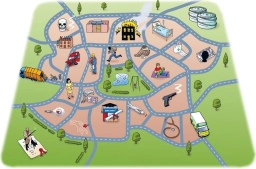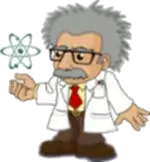Traveled journey
The tourist traveled 3/8 of the planned journey on the first day and 7/12 of the trip on the second day. On which day did he travel most of the way, and by how much?
Final Answer:

Tips for related online calculators
Need help calculating sum, simplifying, or multiplying fractions? Try our fraction calculator.
Do you want to convert length units?
Do you want to convert length units?
You need to know the following knowledge to solve this word math problem:
arithmeticnumbersUnits of physical quantitiesGrade of the word problem
Related math problems and questions:
- Tourist route longest
 On the first day, tourists covered 3/14 of the planned route, on the second day 1/3 of the route, and on the third day 8/21 of the route. On which day did they walk the longest part of the route (1,2,3)?
On the first day, tourists covered 3/14 of the planned route, on the second day 1/3 of the route, and on the third day 8/21 of the route. On which day did they walk the longest part of the route (1,2,3)? - Kilometers of the journey
 A cyclist traveled 199 km in three days. On the first day, he traveled four times more than on the second day and on the second day, he traveled 7 km less than on the third day. How many kilometers did he travel each day?
A cyclist traveled 199 km in three days. On the first day, he traveled four times more than on the second day and on the second day, he traveled 7 km less than on the third day. How many kilometers did he travel each day? - The tourist
 The tourist traveled 78km in 3 hours. Part of the journey went on foot at 6km/h, the rest of the trip by bus at 30km/h. How long did he walk?
The tourist traveled 78km in 3 hours. Part of the journey went on foot at 6km/h, the rest of the trip by bus at 30km/h. How long did he walk? - Bola spend
 Bola spends 7 1/2 hours on his first journey and 13 3/5 hours on his second trip. How much longer did he spend on the second trip than the first one?
Bola spends 7 1/2 hours on his first journey and 13 3/5 hours on his second trip. How much longer did he spend on the second trip than the first one? - Journey route
 During the three-day journey, the friends took 3/10 of the planned route on the first day and 1/4 of the intended way on the second day. How many km do they have left for the last day if the road is 80 km long?
During the three-day journey, the friends took 3/10 of the planned route on the first day and 1/4 of the intended way on the second day. How many km do they have left for the last day if the road is 80 km long? - Three days way
 The tourist walked a quarter of the way on the first day, a third of the rest on the second day, and 20 km on the last day. How many km did he cover in three days?
The tourist walked a quarter of the way on the first day, a third of the rest on the second day, and 20 km on the last day. How many km did he cover in three days? - Three-day trip
 On a three-day trip, cyclists traveled 30% of the total route on the first day, 3/5 of the rest on the second day, and 35 km on the third day. Thus, cyclists traveled 30% of the total route on the first day, 3/5 of the rest on the second day, and 35 km on
On a three-day trip, cyclists traveled 30% of the total route on the first day, 3/5 of the rest on the second day, and 35 km on the third day. Thus, cyclists traveled 30% of the total route on the first day, 3/5 of the rest on the second day, and 35 km on
